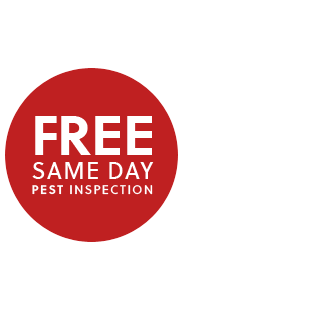Bugs in the bedroom? Yuck!
When you’re trying to go to sleep, the last thing you want to do is count bugs rather than sheep. Although bed bugs are the most notorious bedroom insect, other pests, such as fleas, can also be found between the sheets.
We’re going room by room, from the attic to the crawlspace, to identify potential pest hot spots and what conditions might attract them. In this edition, Clark, your neighborly pest control expert, turns back the covers to identify common pests that might want to call your bedroom home.
Bed bugs
Known for feeding on humans while they sleep, bed bugs are the most common bedroom pest. Bed bugs are found virtually anywhere humans congregate, including single-family homes, apartments, hotels/motels, hospitals, and schools. This is because bed bugs are excellent hitchhikers, catching rides from one place to another in suitcases, dirty laundry, and even books. Once they reach their new destination, these nocturnal creatures typically will hide somewhere in the bedroom, often in bed frames, which provide easy access to human hosts.
Fleas
Fleas feed on any warm-blooded mammal, and can make their way into the bedroom when attached to household pets such as cats and dogs. Although they prefer to feed on pets, fleas won’t pass up an opportunity to feed on you or your family if no other food source is around.
Other pests
Although less common as bedroom pests, ants, cockroaches, and other insects can also be found if crumbs and trash from a midnight snack are not cleaned up. Spiders also may build webs in the corners of bedrooms, especially if the room is cluttered.
Why are pests attracted to the bedroom?
Most insects are less concerned with the quality of the mattress in your bedroom. Instead, they are more attracted to the person or pet lying in the bed. Bedrooms provide an ideal environment for pests, as they provide them with regular access to a food source (i.e., humans) as well as ample hiding spots in bed creases and layers of sheets.
Pest prevention tips for the bedroom
There are a handful of tips you can use to prevent bed bugs, fleas, and dust mites from invading your bedroom.
When traveling, thoroughly inspect the entire room for bed bugs before unpacking, including behind the headboard, under lights, and inside dressers, sofas, and chairs. Pull back the sheets and inspect mattress seams and box springs, particularly at the corners, for signs of these blood-sucking pests. Avoid placing luggage on furniture or luggage racks where bed bugs may hide unseen. When arriving home from a trip, vacuum luggage thoroughly before storing it. Consider using a garment hand steamer, which can kill any bed bugs or eggs that may have traveled home. Also, wash and dry all clothes – even those that have not been worn – on hot cycles.
Address fleas by making sure that your pet is not giving them a free ride into the house. Practice active flea management with any outdoor pets by bathing them regularly, keeping them on a leash, and using flea treatments. After spending any amount of time outdoors, always conduct a flea check on pets.
Inside the home, you should practice good sanitation, especially in the bedroom, to ward off any infestations. Eliminate clutter to reduce potential hiding spots for pests and spiders, wash and dry bed linens using the hottest temperature allowed for the fabric, and closely inspect any secondhand furniture before bringing it inside. Also, be sure to regularly inspect areas where pets sleep for signs of fleas.
Threats posed by bedroom insects
Bedroom insects and arachnids can be both a nuisance and a health threat to people and pets. Bed bugs, though not known to transmit any diseases, can cause red, itchy welts from their bites. Fleas are the most common transmitter of the bubonic plague. More so, they can transmit the bacterial disease murine typhus to humans, and cause allergy dermatitis and anemia in pets.
Call or text Clark at (800) WE-NEED-YOU (936-3339) if you’re experiencing problems with any of these pests in and around your home. You can also drop us an email at clarkcares@clarkpest.com to let us know how we can serve your pest control and lawn care needs.
Until next time, I’m Clark, and thanks for helping me keep unwanted pests out of your home and yard.


